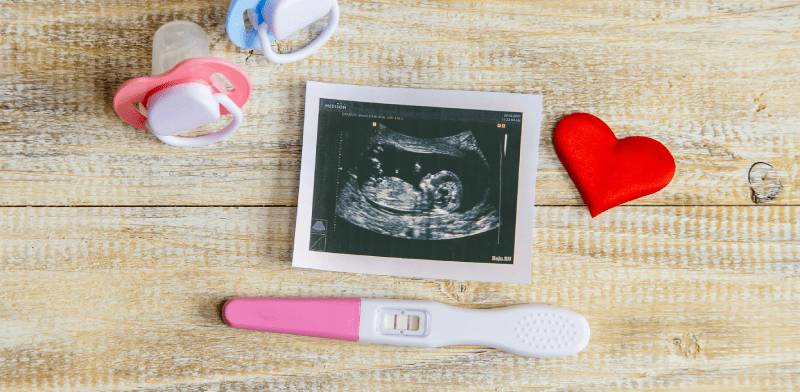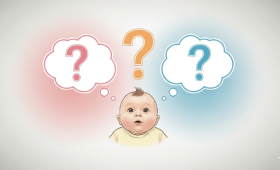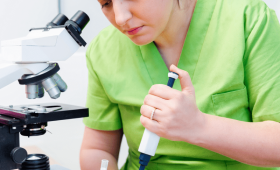What Is Egg Donation in Cyprus And Why Is It Preferred?
Egg donation is the process where a healthy donor’s eggs are fertilized with the partner’s sperm in a laboratory environment, and the resulting embryo is transferred to the recipient’s uterus. This method significantly increases the chance of pregnancy, especially in cases of early menopause, genetic disease carriers, or low ovarian reserve. Cyprus has become a frequently preferred destination for this treatment due to its high success rates, affordable costs, and legal regulations. The treatment process opens a new door of hope for couples.
What Is The Average Cost of Egg Donation Treatment in Cyprus?
The costs of egg donation treatment in Cyprus vary depending on many factors, but they are generally more affordable than in other European countries or the USA. The average costs can differ according to the quality of the treatment center, the services included in the package, and additional tests.
The package price usually includes basic steps such as donor selection, egg retrieval, laboratory procedures, and embryo transfer. Travel, accommodation, and medication expenses are not included in these costs, so you need to plan your total budget accordingly.
What Are The Factors Affecting The Cost of Egg Donation?
The cost of egg donation treatment varies depending on several factors. One of the most important factors is the services included in the package. For example, whether it includes a single transfer or multiple transfers, whether genetic tests (PGT) are included in the price, and the price and quality of the medications used directly affect the cost. In addition, extra services offered by the treatment centers, and travel and accommodation expenses are also part of the total budget. Therefore, it is important to make a detailed plan before starting the treatment.
What Services Are Included In The Treatment Package?
Egg donation treatment packages generally cover the basic steps of the treatment. These steps include the initial consultation, donor selection and preparation, egg retrieval from the donor, fertilization of the eggs with the partner’s sperm in the laboratory, monitoring of embryo development, and transfer of the embryo to the recipient’s uterus. Some packages may also include a pregnancy test after the transfer and the first few check-ups. However, medications, additional genetic tests, or extra transfers are usually charged separately. Therefore, it is necessary to learn all the details before choosing a package.
Is IVF Gender Selection Possible With Egg Donation?
Yes, IVF and egg donation treatment is one of the most definitive methods for gender selection. With a test called PGT (Preimplantation Genetic Diagnosis), the gender of the embryo can be determined before it is transferred to the uterus. This method is also applied to prevent the transfer of genetically inherited diseases in the family. Gender selection with IVF can be an important option, especially for couples with a genetic risk. Since the legal regulations regarding this issue differ in each country, Cyprus offers a legal and safe alternative in this field.
What Are The Legal Conditions For Egg Donation in Cyprus?
Egg donation treatment is legally performed in Cyprus. The laws require that the couples requesting the treatment be married. In addition, the donor’s identity is kept strictly confidential during the treatment process. Donors are comprehensively examined for their health status and genetic diseases. This legal framework protects the rights of both the recipient and the donor and ensures that the treatment is performed safely.

How High Are The Success Rates in Egg Donation?
The success rates of egg donation treatment are quite high, especially for women over 40, compared to IVF treatments performed with their own eggs. The success rate increases significantly due to the young age of the donor and healthy eggs. The average success rates can be around 60-70% per transfer, but these rates can vary depending on the recipient’s age, uterine health, and the quality of the donor used. These high rates are a great source of hope for couples considering the treatment.
How Is Egg Donor Selection Made?
Egg donor selection is one of the most important steps of the treatment process. Donors are usually matched according to their physical characteristics, ethnic origin, educational background, hobbies, and general health status. The clinics have a comprehensive donor database. While the donors’ identities are kept confidential, the recipient and the partner are provided with information such as the donor’s childhood photos or basic physical characteristics. This helps couples choose the most suitable donor for them.
Is There a Waiting Period For Egg Donation in Cyprus?
The waiting period for egg donation treatment in Cyprus is usually very short. Many clinics have a large and ready donor database, which allows couples to start treatment quickly. Generally, a suitable donor can be found within a few weeks according to the couples’ requests. This short waiting period is a great advantage, especially for couples with time constraints.
What Are The Stages of Egg Donation Treatment?
Egg donation treatment begins with preparing the recipient’s hormonal balance. The recipient uses certain hormone medications for the uterus to accept the embryo. At the same time, the selected donor is given hormonal treatment for egg production. After the eggs are retrieved, they are fertilized with the partner’s sperm to form embryos. The development process of the embryos is monitored in the laboratory, and the healthiest embryo is transferred to the recipient’s uterus.
How Long Do You Need To Stay in Cyprus For The Treatment?
Egg donation treatment requires simultaneous monitoring of the recipient and the donor. The recipient can complete the preparation process in their own country. However, they need to be in Cyprus for the embryo transfer. This process usually takes 7-10 days, including the embryo transfer and the subsequent rest period. It is important to plan accommodation and travel during this period. In these matters, Cure Holiday can offer you special holiday and travel packages.
Who Can Be an Egg Donor?
Egg donors are usually selected from young, healthy women between the ages of 21-30 who do not have any genetic diseases. Donors are required to undergo comprehensive psychological and physical health tests. Criteria such as not using alcohol and cigarettes, having regular menstrual cycles, and having a sufficient ovarian reserve are sought. This meticulous selection process increases the chance of success of the treatment and ensures that the resulting embryo is healthy.
How Is Privacy Ensured in Egg Donation Treatment?
According to Cypriot laws, egg donation is completely anonymous. The donor’s identity information is kept confidential from the recipient and the partner, and the donor also does not have access to the couple’s identity information. This confidentiality protects the rights of both parties and provides a legal framework. Only basic information about the donor, such as physical characteristics, ethnic origin, educational background, and childhood photos, is provided. This anonymity allows couples to confidently choose the treatment.
Why Is Gender Selection Important?
Gender selection, while based on personal preferences for some couples, is mostly preferred for the prevention of genetic diseases. If there is a genetic disease in the family that only affects a specific gender, the selection of the healthy gender embryo can prevent the transmission of this disease to future generations. This is an important step for family planning and plays a critical role in the continuation of a healthy lineage.
Are There Any Hidden Costs In The Treatment?
When planning egg donation treatment, it is important to consider possible costs outside the treatment package. Items not usually included in the initial package price may include medications, genetic tests, additional embryo transfers, or embryo freezing costs. In addition, travel, accommodation, food, and other personal expenses should also be added to your budget. Therefore, it is important to ask for transparent information about all costs from the clinic before starting the treatment.
Is Psychological Support Needed After Egg Donation?
Egg donation treatment can be an emotionally and physically exhausting process for couples. Receiving psychological support during this process can help in managing emotional fluctuations and coping with stress. Support from a specialist can help you go through the treatment process in a healthier and more positive way. This support becomes even more important, especially if the treatment is unsuccessful or the process is prolonged.
What Tests Should Be Done Before Starting The Treatment?
Before starting egg donation treatment, various tests are performed on the recipient and the partner. The recipient’s uterine health, hormonal balance, and general health status are evaluated. The partner’s sperm quality and count are also examined. These tests help identify possible problems that may affect the success of the treatment. The comprehensive tests performed allow the treatment process to be planned on an individual basis and increase the chance of success.
Is The PGT Test For Gender Selection Safe?
Preimplantation Genetic Diagnosis (PGT) is a genetic screening method performed on embryos. This test is performed with a few cells taken from the embryo, and the risk of harm to the embryo is quite low. PGT not only determines the gender but can also detect genetic and chromosomal diseases. This way, it is confirmed that the embryo to be transferred to the uterus is healthy and the chance of pregnancy is increased.
How Are The Donor’s Eggs Retrieved?
The donor’s eggs are retrieved using a medical procedure called egg retrieval. The donor is given hormonal medications to stimulate her ovaries. When the eggs are mature, they are collected with the help of a thin needle under the guidance of a vaginal ultrasound. This procedure is usually short and painless for the donor. The collected eggs are prepared for fertilization with the partner’s sperm in the laboratory.
Is The Success Rate Of IVF Treatment Related To Age?
The success rate of IVF treatment is closely related to the recipient’s age. In treatments performed with their own eggs, success rates begin to decrease after age 35. In egg donation treatment, since the donors are usually young, this effect is eliminated, and success rates remain constant. Therefore, egg donation can be a more successful option for older recipients.
What Are The Side Effects of IVF Treatment?
IVF treatment can cause some side effects. In egg donation treatment, the medications and hormonal supplements given to the recipient can cause side effects such as abdominal bloating, mild cramps, or mood swings. These are generally mild side effects and go away in a few days. On the other hand, for donors, the egg retrieval procedure can carry risks such as infection or bleeding, although rarely.
Why Are More Than One Embryo Transferred in IVF Treatment?
In IVF treatment, more than one embryo may sometimes be transferred to increase the chance of pregnancy. However, this situation increases the risk of multiple pregnancies (twins or triplets). Due to legal regulations and ethical concerns, the number of embryos to be transferred is limited. Especially when young and healthy donor eggs are used, high success rates can be achieved even with a single embryo transfer.
Why Is Egg Donation Treatment Abroad Advantageous?
Egg donation treatment abroad is advantageous for couples who face legal obstacles in their own countries or who want to make the treatment costs more affordable. Cyprus offers high success rates, a large donor database, and easy travel opportunities in this regard. Working with an organization like Cure Holiday for travel and accommodation planning during the treatment process can make the entire process easier and smoother.

Is Pain Felt During IVF Treatment?
During egg donation treatment, the embryo transfer to the recipient’s uterus is usually a painless and comfortable procedure. Anesthesia is not needed for this procedure. For donors, the egg retrieval procedure is a short operation and is usually performed under light anesthesia. This way, the donor does not feel any pain during the procedure.
How Are The Donor’s Physical Characteristics Determined in Egg Donation?
In egg donation, the donor’s physical characteristics are determined according to the wishes of the recipient and the partner. The donor database contains the donor’s physical characteristics such as height, weight, hair color, and eye color. Some clinics may also provide the recipient and the partner with childhood photos of the donor. This way, couples can choose a donor who physically resembles them.
Is There an Age Limit For Egg Donation?
There is no specific age limit for the recipient for egg donation treatment, but the recipient’s general health status must be suitable for pregnancy. Most clinics prefer to perform this treatment on women under 55. This age is considered ideal for the recipient to be able to carry the pregnancy in a healthy way. This situation offers a great opportunity for women who do not have a chance to get pregnant with their own eggs.
What Are The Lifestyle Changes That Should Be Made Before The Treatment?
Before egg donation treatment, it is important for both the recipient and the partner to adopt a healthy lifestyle. It is necessary to quit smoking and alcohol consumption, eat a healthy and balanced diet, exercise regularly, and stay away from stress. These lifestyle changes increase the chance of success of the treatment and positively affect the health of both you and your future baby.
Can Embryos Be Frozen After Egg Donation?
Yes, healthy embryos that are not transferred after egg donation treatment can be frozen and stored. This way, couples do not have to undergo treatment again for a future second pregnancy. The chance of pregnancy with a frozen embryo transfer (FET) is also quite high compared to a fresh embryo transfer. This situation provides a great convenience for couples in terms of both cost and time.
Is It Necessary To Stay Only in Cyprus For The Treatment?
The duration of stay in Cyprus for the treatment is usually between 7-10 days. The recipient can complete the hormonal preparation process in their own country and only travel to Cyprus for the embryo transfer. This makes the treatment process more flexible. However, if you want to get more information about all the stages of the treatment, you can get support from organizations like Cure Holiday to organize your travel plans more easily and comfortably.
What Is The Chance of Twin Pregnancy with Egg Donation?
In egg donation treatment, the chance of a twin pregnancy increases depending on the number of embryos transferred. Generally, more than one embryo can be transferred to increase the chance of pregnancy. However, multiple pregnancies can also carry some risks. Therefore, couples and specialists decide on the number of embryos to be transferred by considering the balance of risk and benefit.
How Is The Donor’s Egg Quality Guaranteed?
Egg donation clinics apply a meticulous screening process to guarantee the quality of the donors’ eggs. Donors are screened for hormonal tests, ultrasound checks, genetic tests, and infectious diseases. In addition, the donor’s age and ovarian reserve are also evaluated. This comprehensive screening process is done to maximize the chance of success of the treatment.
What Should Be Done in Case of Treatment Failure?
If egg donation treatment is unsuccessful, this situation can be emotionally challenging for couples. In this case, it is important to first seek psychological support from a specialist. Then, a plan can be made for the next transfer. If there are previously frozen embryos, they can be used. If not, a new donor and treatment process can be planned. The important thing is not to give up and to remain hopeful.
Is The Pregnancy Process After Egg Donation Different?
A pregnancy achieved through egg donation is no different from a pregnancy achieved through natural means. The pregnancy process is the same in terms of hormonal changes and physical symptoms in the recipient’s body. During this process, it is important for the recipient to continue with regular check-ups and maintain a healthy lifestyle. The recipient experiences every stage of the pregnancy normally, and all necessary precautions are taken for the baby’s healthy development.
How To Plan The Treatment Process and Travel?
Travel planning for egg donation treatment is usually done with the support of the treatment clinic or a travel agency like Cure Holiday. First, a pre-consultation is arranged, and a treatment plan is created. The hormonal preparation process starts in your own country. Then, the short trip required for the embryo transfer is organized. This planning ensures that the trip and accommodation are comfortable and smooth.
Why Are Young Donors Preferred For Treatment?
The most important reason for preferring young donors in egg donation is that eggs at a young age are genetically healthier and have a higher chance of pregnancy. As age advances, the risk of chromosomal anomalies in eggs increases. Using young and healthy donor eggs ensures the healthy development of the embryo and reduces the risk of miscarriage. This also significantly increases the success rates of the treatment.



